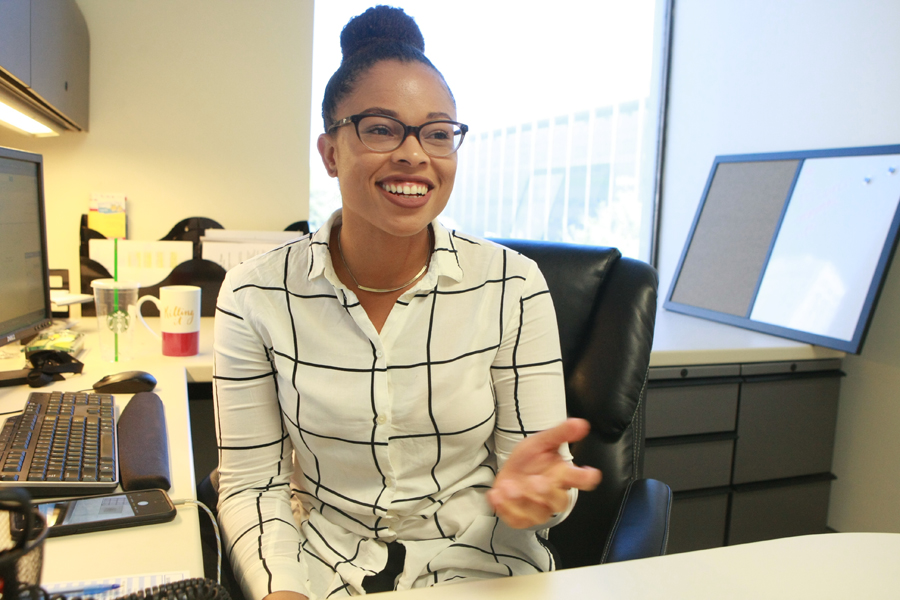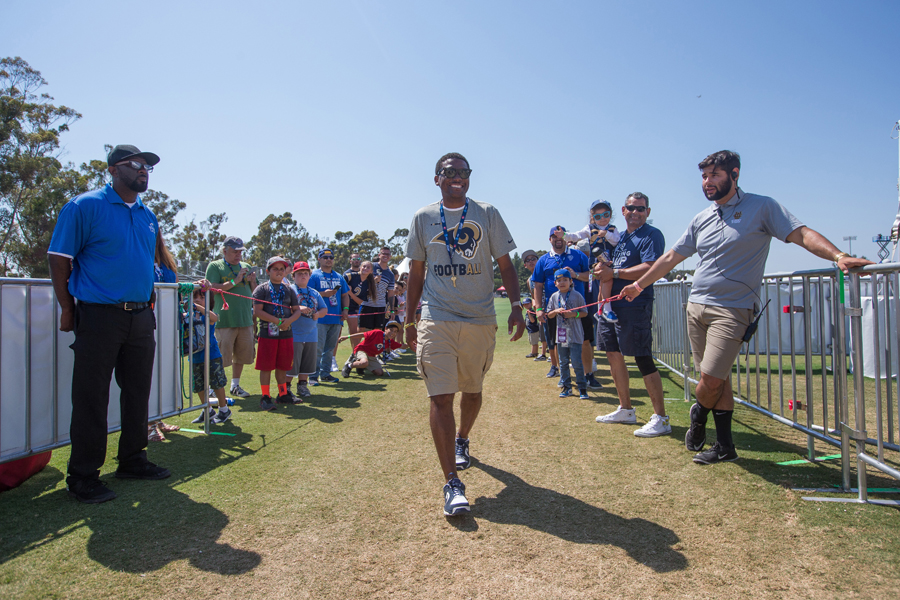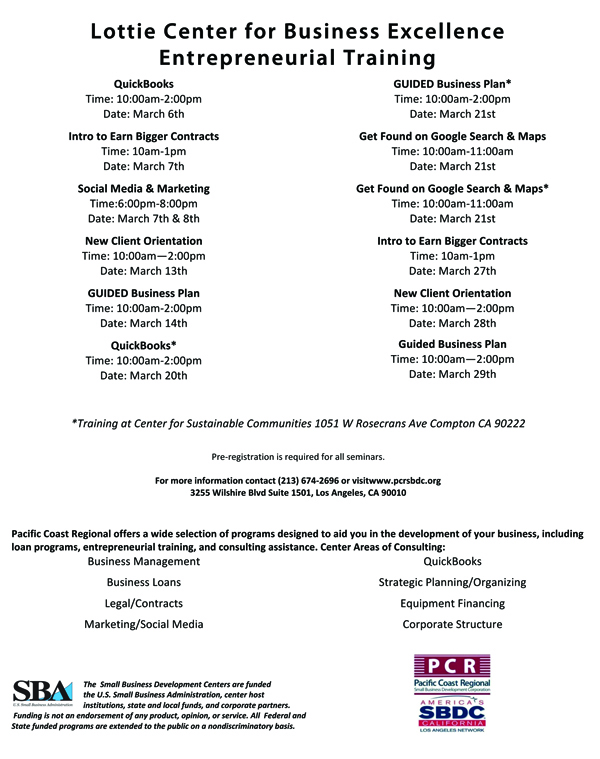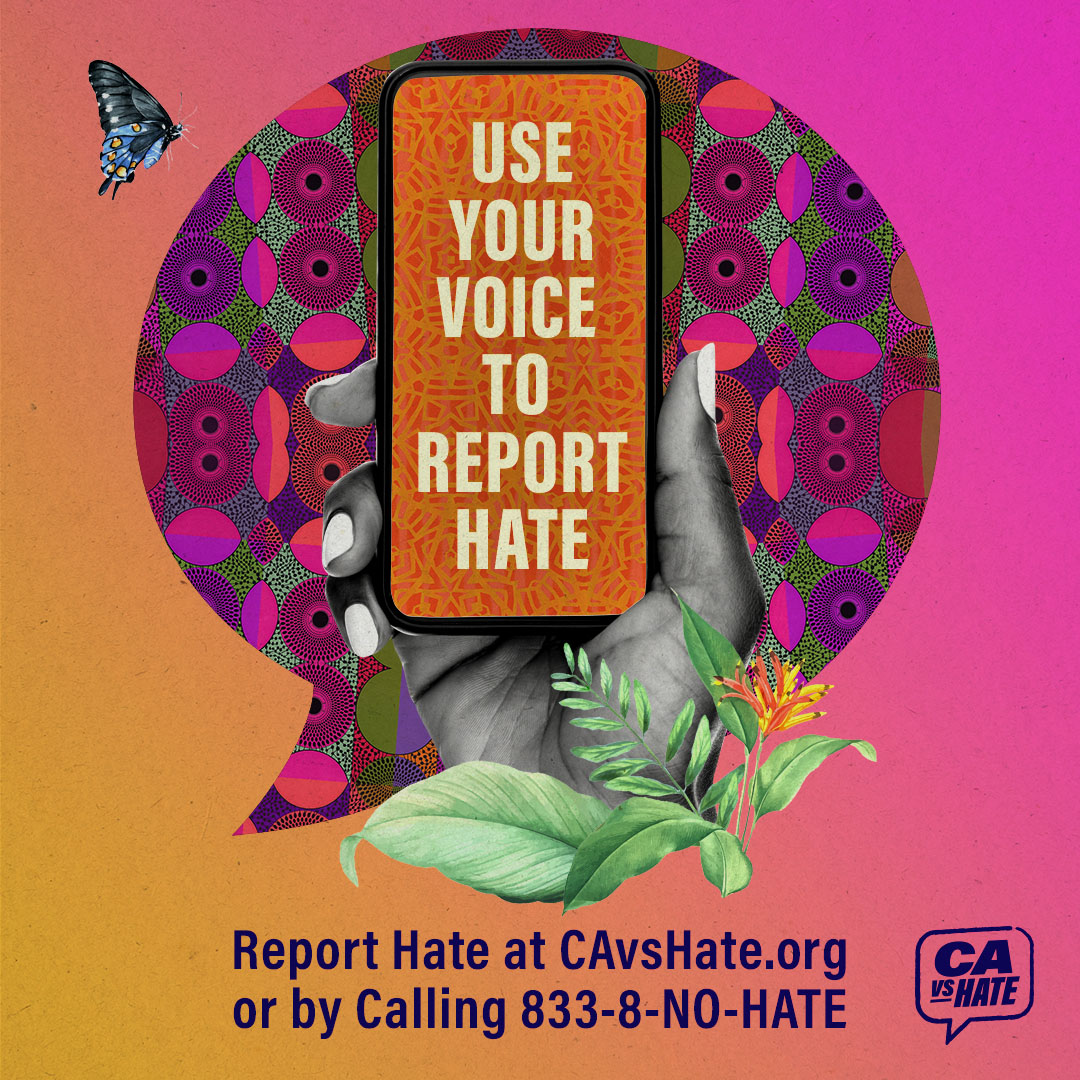Communication professionals Jade Stevens, Los Angeles City Controller, and Artis Twyman, Los Angeles Rams, are tasked with managing the information that goes out to the media and the public.

By Blake Carter
In today’s Internet age, the news never stops and people are more dialed in to their favorite subjects than ever. Information is literally in the palm of people’s hands. Because of this, companies and organizations in the public and private sectors have a great need for people who can manage their information.
Jade Stevens, Deputy Director of Communications for the Los Angeles City Controller, and Artis Twyman, Director of Communications for the Los Angeles Rams, are shaping the way that people receive news.
Stevens is the gatekeeper of information
Stevens started her career in public relations (PR) at an early age, even though she didn’t realize it at the time.
“I always used to help my parents promote things at church,” she said. “I just liked doing those things. I didn’t know that I was becoming a PR professional.”
Stevens’ parents are both from South Los Angeles, and they moved their family to the Moreno Valley when she was a young child. She moved back to the Los Angeles area to attend Cal State University Dominguez Hills, where she majored in communications with an emphasis on public relations, and she minored in advertising. While she was in school she continued to hone her skills by surrounding herself with on campus organizations.
“I joined pretty much any club that was around public relations and communications,” she said.
Stevens became the president of the Public Relations Student Society of America, where she was able to network with potential employers. She also joined Sigma Gamma Rho Sorority, Inc., where she was able to put her communications skills to work.
“I got to understand what made people come out to events,” she said. “Dominguez is a commuter campus, so there’s not a lot of people staying on campus. I had to figure out what type of message that I wanted to send out and the different things that would get people to come out and support us.”
After graduating from Dominguez Hills, Stevens interned at Lagrant Communications, and then she was hired by Assembly Member Sebastian Ridley-Thomas to be the communications director. While she is currently the Deputy Director of Communications for the Los Angeles City Controller, she is also in an MBA program at USC’s Marshall School of Business.
“The trend within PR and communications is being able to quantify the results that you’re producing for your clients,” she said. “When my career started, it was enough to say, ‘Hey, we got you on CNN; we got you in The Wall Street Journal; you’re on the Today Show.’ That is still good, but now clients are starting to ask what that translates into in terms of dollars, or customers. That’s more about marketing, but it’s still kind of spilling over into PR. We’re all kind of merging together.
“By getting my MBA, I’m taking classes in finance, strategy, and marketing, and I’m seeing how they all kind of work together.”
Stevens is also getting a certificate in data and analytics, which will help with social media.
“You can qualify and create data sets with anything, and find ways to explain that to whoever I’m working with,” she said. “I need to be able to comfortably explain to them in terms of numbers and quantifiable results, and say, ‘Hey, we made you go viral on Facebook, that was shared with a million people, which will result into X amount of sales because we used this link, and these people are more likely to purchase your product.’ I didn’t really know that before.”
At the Controller’s office, Stevens translates information into terms that the typical person can understand.
“I’m kind of like the gatekeeper,” she said. “I’m taking what could be considered complex information and translating it to a more bite-sized clip or soundbite.”
Stevens long-term goal is to be a chief marketing officer (CMO) or a chief communications officer (CCO).

Twyman has a sports fan’s dream job
Twyman grew up a big sports fan in Gary, Indiana. He played basketball and baseball as a child, and he was always a football fan. But when he started working on his bachelor’s degree in speech communications at Tennessee State University, and his master’s degree from Middle Tennessee State University, sports wasn’t in his future plans.
“In college, my long-term goal was to be a speechwriter for the President of the United States,” he said.
One of Twyman’s undergraduate professors encouraged him to take an internship in the university’s public relations department, because it would help him with his writing. He would later be hired to be the university’s public information officer, which launched his career in PR.
Twyman was initiated into Kappa Alpha Psi Fraternity, Inc., he had just completed his master’s degree, and he had a really good job. All was going smoothly for him, and then the NFL came to Tennessee.
The Houston Oilers moved to Tennessee in 1997. The team began playing at the Adelphia Coliseum, now known as Nissan Stadium, in 1999, and they changed their name to the Titans. Tennessee State University’s football team also played at the Adelphia Coliseum.
“I worked closely with the Titans PR department,” Twyman said. “The guy who was the Director of PR of the Titans, Tony Wyllie, became the vice president of communications for the Houston Texans. I told him that I would love to work in the NFL, and he said that he had an internship. Well at that time, I had a masters’ degree, and I had worked in PR for almost five years. I didn’t want to be an intern. I said, ‘Man, look at my stuff, I shouldn’t be an intern.’ And he said, ‘Listen, everybody who started out in communications in the National Football League started out as an intern.”
Twyman felt that he could get another job like the one that he had at Tennessee State University, but there would not be many chances to work in the NFL. He had some money saved up, and he sold all of his belongings so that he could move to Houston to take a job that did not pay anything.
“My parents were furious,” he said. “But to get an opportunity to work in sports, it was a dream job.”
Twyman’s journey into the NFL quickly paid off. After six months as a public relations intern with the Texans, he was hired as a public relations assistant with the Seattle Seahawks. After two years there, he was hired by Duane Lewis, who was the director of new media for the St. Louis Rams, to be an assistant director of football media. Five years later he was the team’s director of media relations, and his current position with the team is senior director of communications. In his role with the Rams, he manages several different tasks to ensure that information and news is disseminated properly.
“Our department, we’re the liaison between the organization and the media,” he said. “Not only are we here to help the media get interviews with our coaches, players, and staff, on the flip side of that, we’re also here to prepare our coaches, players, and staff for these interviews. We’re helping them with their answers, what the messaging should be.”
Twyman’s department maintains the team’s stats, historical information, and grants media credentials. They write news releases, feature articles, create the media guides, and write the player bios. He worked closely with the producers of HBO’s Hard Knocks when the Rams were featured on the program. He pointed out that this is a 24-hour a day job because of the way news is shared today.
“I’m old enough to remember that the only way you got your information was from the newspaper, radio, or the television,” he said. “If something happened at 11 o’clock p.m., you had all night to prepare for what you were going to say the next morning. Because you didn’t have to worry about the story coming out on the Internet. But now, people consume information in so many different ways with the Internet. So everybody has an opinion on what should be happening with your team. Which is exciting, because you want people talking about your team. But at the same time, you have a lot of different messages that are coming across.”
Many people would think that the most exciting part of Twyman's job is covering the team on game day, but he takes a greater value out of his position.
“Don’t get me wrong, game day is very exciting,” he said. “But for me, the best thing is the relationships that you make. Some of my best friends are people that I’ve worked with in the NFL. You get a chance to meet a lot of players and coaches that you’ll have relationships with for the rest of your life. The relationships that you make are one of the more gratifying parts of this job.”

www.joinlapd.com www.joinlafd.org
Breaking into the industry
Stevens and Twyman offer some sound advice to people who are looking to break into this industry. Stevens encourages people to take courses or a major that falls under communications. Journalism major would also work. She also points out that many people are making it in the communications field with unrelated majors, and some people did not obtain a college degree.
“You don’t absolutely need a degree, because I’ve seen people create a career without it,” she said. “In that sense, I would encourage people to teach themselves. There are so many resources online. You can also go to different community colleges, extensions, or adult learning centers at Dominguez Hills or UCLA. You can take a few courses to give yourself the very basics. So if you don’t get your degree, I’d say pair the extended education courses with freelancing. There are a lot of companies that are always looking for interns.”
Twyman also recommends that people take on internships, and encourages people to network as much as possible to break into sports media.
“Exhaust all possibilities,” he said. “Reach out to every single football team, or basketball team, or baseball team. Let them know that you are available and that you want to be an intern, and that you’re ready to start from the ground up.”
Stevens has made great use of networking, as she has interacted with several local organizations, including the Public Relations Society of America, Los Angeles (she writes the newsletters for this organization); Black Public Relations Society of Los Angeles; the Healthcare Public Relations & Marketing Association; the American Marketing Assocation Los Angeles; and the Hispanic Public Relations Association.
Stevens also recommends that people find a mentor in the industry, and Twyman recommends that people should also be looking for ways to improve their writing skills.
Looking to start a small business? Contact Pacific Coast Regional Small Business Development Corporation.
















